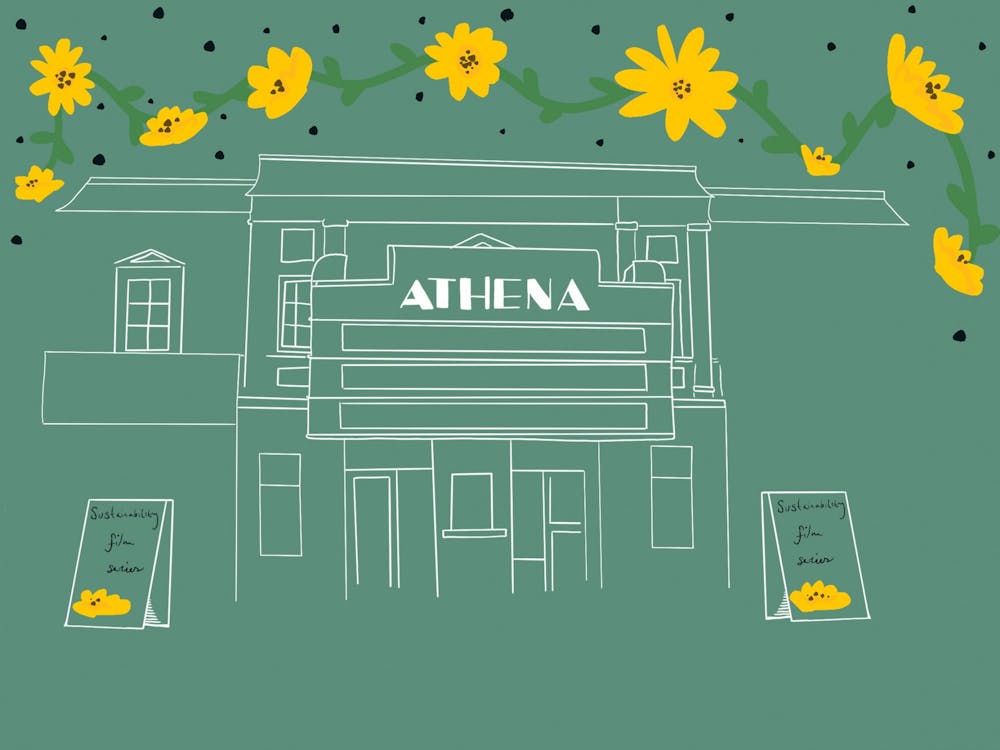The eighth annual Sustainability Film Series, sponsored by the Athena Cinema, Ohio University’s Environmental Studies Program and University Libraries, will be held virtually. The free films present different cultures and world events, while discussing sustainability efforts.
“Environmental Studies has been a driver of the film series since its inception,” Loraine McCosker, environmental studies instructor, said in an email. “The films have been screened through the Athena Cinema and they have been a wonderful colleague to work with, as well as the Alden library.”
McCosker said many of the films focus on racial and environmental injustice – topics that she feels resonate with many students. She added that, though the series aims to show a diverse set of films, it searches for films that are also appealing to students.
After the films, a panel for discussion is provided. Lorraine Wochna, librarian at Alden library, describes the panels as jumping-off points, places to spark conversation and share knowledge between participants.
“We like our panels to have some breadth and depth, so we invite a student, faculty (or) community member (or two). We are aiming to raise awareness of social justice issues and diversity and inclusion,” Wochna said in an email. “The voices in these communities are very different and it’s fascinating to hear responses to our questions.”
Alexandra Kamody, director of Athena Cinema, agrees that the panels are a space to create conversations and to reflect on the experience.
“I think that's really cool, too, because we have audience members that have come from all different types of backgrounds, from different places from different socioeconomic backgrounds, from different cultural backgrounds,” Kamody said. “So everybody brings their own unique views and reflection to experience, really.”
Kamody said even with the transition to a virtual setting, the conversations have still been vibrant and engaging. Sometimes, not everyone on the panel would speak up, but Kamody still noted that others got involved who would not normally engage.
“One of the bigger challenges that continues to be problematic through the virtual (environment) is that a lot of people in this area really don't have broadband or they don't have internet access,” Kamody said. “So, we haven't seen the large amount of community participation that we normally see. But this series has been a challenge to get those community members to be able to take part in something relying on internet technology. So, those are challenges we're still kind of working on, and I think it's gonna be really interesting to see how things (go) over the next year, like what sticks around that worked really well.”
Wochna agreed that there are plenty of advantages and disadvantages of the new format.
“Going from live, in-person events to virtual is a lot of work; on all of our parts,” Wochna said in an email. “We (Loraine, Alexandra) do all the same things, but instead of gathering some folks after the film, we moved to Zoom panels; which has its pros and cons.”
One of the biggest disadvantages for the Athena was having to shut its doors in general, as well as finding different ways to serve the community.
“The Athena opened in 1915; it’s been kind of the heart of the Uptown Athens area, as a community, for so long that closing our doors is really something that we never wanted to do, but also the safety of our community is our top priority,” Kamody said. “So, we understood that was something we had to reckon with.”
Kamody said she believes these films have a large importance to Athens as well as the university.
“I would say that my role has specifically been just really believing that this series was important to our university and our larger community and that the series really embraced everything that the Athena's mission was really striving to do,” Kamody said.






